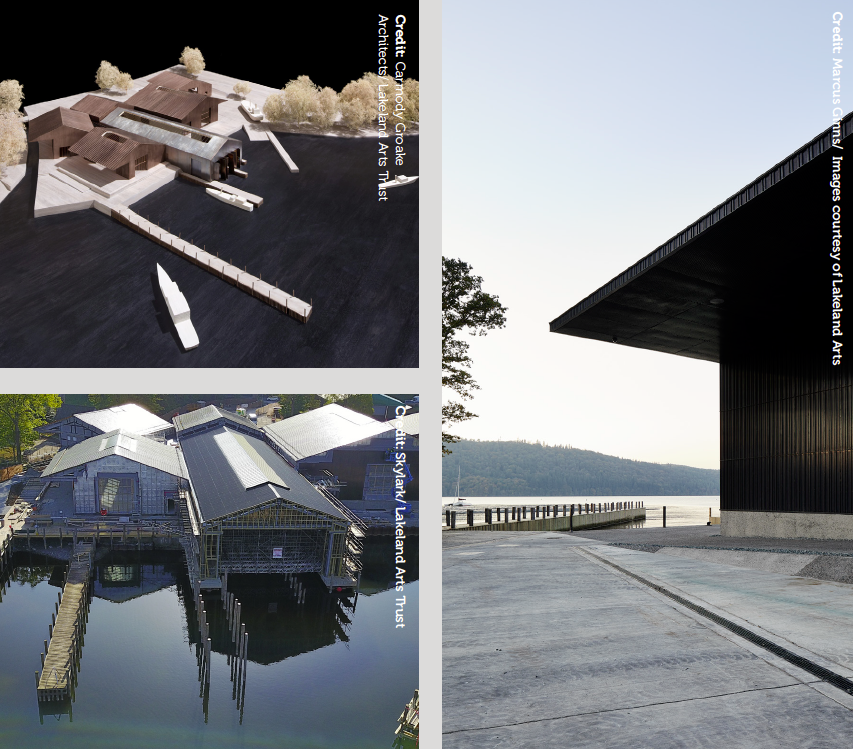[3.18.01] We want to secure a high quality, sustainable tourism experience for the diverse range of visitors to the Lake District, and ensure proposals benefit our local communities and businesses, whilst conserving and enhancing the natural beauty, wildlife and cultural heritage of the Lake District.
To increase the resilience of the Lake District to all types of flood events, including river, surface water and coastal flooding.
[3.18.02] Tourism industries are a significant contributor to the Lake District’s economy as a result of the millions of visitors coming every year, benefitting many of its local businesses, workers and residents. Data derived from tourism modelling of visitors to the Lake District suggests that the economic impact and number of visitors coming to the Lake District is continuing to increase year on year at a rate of about 2.5 per cent. The number of overnight visitors as a proportion of total visitors is increasing, and the spread of visitors, while still dominated by the summer season, is increasing in the traditionally quieter months, which helps to support a more year round industry, and reduces the seasonality of jobs. There is a perception that many tourism related jobs are low paid and that tourism does not significantly contribute to creating a higher paid and skilled economy, however as with many enterprises there are a range of jobs at different salary scales and skill levels within each business.
[3.18.03] The amount of tourism related development taking place across the Lake District varies, with the Central Lakes being the main focus for tourism activity but there are ambitions from local communities and neighbouring councils to develop and improve the visitor offer in the West Distinctive Area of the Lake District. Throughout the Lake District there has been significant increases in floorspace of tourism and leisure development between 2012/13 and 2015/16 (25,000 square metres) – the majority coming from existing hotels, bed and breakfast, guest houses, and other accommodation. Such levels of development and the increasing visitor numbers can lead to additional visitor pressures on existing infrastructure resulting in the need for improvements.
[3.18.04] There is continual pressure for change to the visitor accommodation market, as trends change, including the rise of Airbnb and glamping. This creates issues for less popular holiday accommodation types, and the demand to increase the stock of the more fashionable accommodation, including the availability of a range of accommodation to suit all budgets. There is significant demand for holiday let accommodation which contributes to the pressure on the existing housing stock.
[3.18.05] The policy aims to locate new tourism development in places which offer a choice of transport options for visitors and employees. The transport element of proposals will be assessed against Policy 21: Sustainable access and travel. Tourism proposals will be required to submit a Transport Assessment or Transport Statement, and Travel Plans, where appropriate.
[3.18.06] The ‘local area’ for this policy is defined as either a Rural Service Centre or the extent of the parish boundary for other locations.
[3.18.07] We include lodges, pods, yurts, shepherds huts, tree house accommodation, and similar structures as well as static, touring and tented accommodation under the term ‘caravan and camping’.
[3.18.08] Under the caravan and camping part of the policy ‘pub or drinking establishment’ is expected to include rural pubs or inns. It is not anticipated that this would include pubs or other drinking establishments within Rural Service Centres unless it can be demonstrated that it will not result in inappropriate levels of use or amenity issues, including to the staying visitor.
[3.18.09] The increased activity on caravan and camping sites seeking year round use will result in additional pressure on surrounding infrastructure will be considered as to whether they should expected to contribute to improved infrastructure provision under Policy 08: Infrastructure and developer contributions.
[3.18.10] For the change of use of holiday accommodation to other uses we would expect an appropriate marketing exercise to have taken place for a minimum of 12 months, and other evidence may include, but not limited to, evidence of demand from commercial property agents and District Councils.
[3.18.11] Proposals for new hotel and guest house accommodation, including extensions, will need to consider the amount of employment the proposal will create and whether there is likely to be sufficient accommodation available locally or easily accessible via sustainable transport to meet staffing requirements. Where this may not be the case applicants should consider and incorporate the provision of an appropriate level of staff accommodation within the development proposal.

Image credit: Marcus Ginns/ Image courtesy of Lakeland Arts Trust
The museum is home to an internationally significant boat collection on the shores of Windermere. The new building includes exhibition spaces for the display of a variety of vessels. A wet dock will allow the display of boats on water within the museum. The redevelopment of the site was part of the Windermere Waterfront Programme – a strategic programme with wider aspirations to provide a World Class visitor experience around Windermere, the lake.